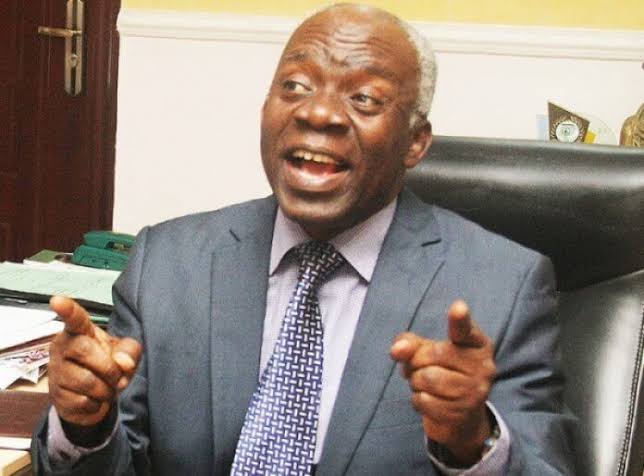Human rights lawyer, Femi Falana, has asked the federal government to allow the state governments to decide the livestock policy.
He urged the federal government to desist from creating problems for states with the grazing reserves policy it embarked upon.
While speaking with journalists on Saturday at the inaugural ceremony of the Old Seminarian Association of Nigeria (OSAN) in Abuja, Mr Falana, who is a Senior Advocate of Nigeria, said the government cannot claim ownership of grazing routes when it never had one.
Mr Falana stated that the existing grazing reserves and routes belonged to the government of the old Northern Region.
“Take the question of animal husbandry, where herders— armed herders are killing people. This is a problem that can be solved scientifically. Today, the governors of Kaduna, Zamfara and Katsina states have banned the interstate movement of cattle. Which is a ban on open grazing. The Kano State Government is investing massively in RUGA settlement.
“In July, President Buhari gave N6.2 billion to Katsina State government for ranching. So if you are giving money for ranching to Katsina state, why are you now looking for grazing routes in other states?
“In any case, the federal government never had a grazing reserve or grazing route. They were owned by the government of the old northern region. And we are talking of the 19 northern states now. So, what the federal government never had cannot be reclaimed.
“This problem should be left to the states because aside from the Federal Capital Territory, the land in every state is vested in the state governor on behalf of the people. So, the federal government should not continue to cause problems for our people.”
The lawyer said the northern governors and their counterparts in the south had already kicked against open grazing because ranching was the more acceptable method and it was also part of the National Livestock Transformation Plan of the federal government.
He added,” This is a country of wonderful opportunity. We have always been united in our diversity. Right now, our country is sharply divided. Christians against Muslims, one ethnic group against another, and these are all diversionary tactics by the ruling class to keep our people divided.
“The problem of this country is the same. Poverty is the same all over the place. Notwithstanding that the northern part of the country has produced more rulers, poverty in the north, particularly in the North-west is higher than in other regions, and this is why our people must be united. The oppressed must be united. The exploited must be united and we must examine those problems that are being used to divide our people.”
He also questioned the recent announcement by the government that it plans to recruit 20,000 policemen.
According to him, the country needs half a million policemen to meet its security challenge.
Mr Falana also endorsed the creation of state police, while harping on the need for northern governors to adopt the domestication of the child rights act which will reduce illiteracy in the region.
“Right now, security forces are overstretched and I was reading somewhere this morning that the government is trying to recruit 20,000 policemen. To do what? Over 10,000 police personnel are leaving the service every year, so you are recruiting anybody.
“The position on ground is that not less than half a million police personnel should be recruited, well equipped to man the security of the country. But right now, you have the military in the Federal Capital Territory and 34 out of 36 States. You can’t police a country with the army or with the armed forces? That is the business of the police. And so the government will have to equip the police and will have to acquire gadgets.
On the child rights Act, Mr Falana said, “We also have to educate young people. Out of 36 States in Nigeria, 11 states in the north have not adopted the Child Rights Act – to make education free and compulsory for every child from primary to junior secondary school.”
In his remarks, Chima Nweze, a Justice of the Supreme Court, said there is a need to use available mechanisms to weed out people of questionable character from public life.
The Clerk of the House of Representatives, Chinedu Akabueze, who was the chairman of the inaugural ceremony, encouraged the old seminarians to imbibe the teachings of the seminary in public life.

